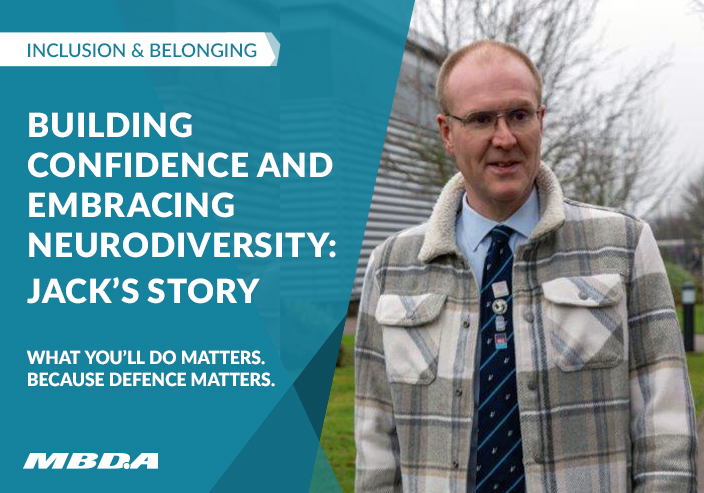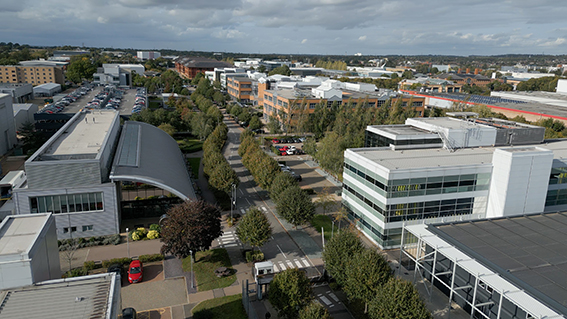Story
Building Confidence and Embracing Neurodiversity

Thursday 6 February 2025
Hear from Senior Engineer, Jack about his own experiences of how MBDA takes positive steps to create a sense of belonging and accessible working environment...
Working at MBDA, for me personally, has been my first job in engineering, following a long route through higher education. This was a big jump from unskilled work into the professional working environment, but MBDA offered the appropriate working environment and the freedom to choose a work schedule to fit around my life. They provided me with additional support and assistance for the assessment centre and helped me integrate into a professional environment with reasonable adjustments, thanks to the workplace passport. However, it has not just been about achieving professional engineering experience, but also about developing self-confidence in myself.
Even before finding my feet in engineering at MBDA and gaining the confidence that I could be an asset to the engineering community, the company made me comfortable about disclosing my Asperger Syndrome (AS).
During my middle school years, it was a challenge for me to make it through a full school week without something disrupting my routine or losing interest in my work. It was during my upper school and college years that I truly learned what AS meant and how I could use it to my advantage. This allowed me to flourish and become an aerospace student with some of the highest grades before earning a BEng and MEng through the self-study route with the Open University.
Being confident about disclosing openly offered me an opportunity I never would have thought possible. Six months after joining the company, I received a message from my technical coordinator on the graduate scheme. She told me that some members of MBDA were looking to set up a new committee for people with learning disabilities and asked my permission to forward them my details.
Of course, I was delighted to give my permission. I had no reservations about disclosing my condition again. Following the first online meeting, I was so encouraged to hear others open up about their own stories, and for the first time, I heard the word “neurodiversity.” It did not feel like a label but more like a name for the class of people I am part of.

Image: Aerial view of our MBDA Stevenage site
Over the following months, I learned about the whole spectrum of neurodiverse conditions, from autism to ADHD, Tourette’s, dyslexia, and Down’s syndrome. Learning the term neurodiversity also opened my eyes to other forms of diversity – ethnicity, religion, values, beliefs, and gender. All these differences were staring me right in the face, but being less social and pursuing a self-study route through higher education, I had never noticed them. Only when I heard the word “diversity” did I truly see that my condition does not make me different in a negative way. Everyone else, like me, is diverse in their own way.
Being part of the Neurodiversity Committee has helped me find acceptance, education, and purpose in being able to call myself “autistic.” I have found new friendships and connections and have even encouraged other individuals to open up about their conditions and find common ground.
This has been evident in MBDA encouraging me to sign up for the STEM ambassador scheme. I have discovered a new passion many would have thought impossible for me—speaking to school children. Sharing my experiences and passions has helped me build self-confidence and find fulfilment like I never have before, helping them get excited about future careers.
Want to find out more about our commitments to Inclusion and Belonging at MBDA UK? Click the link below to find out more.
